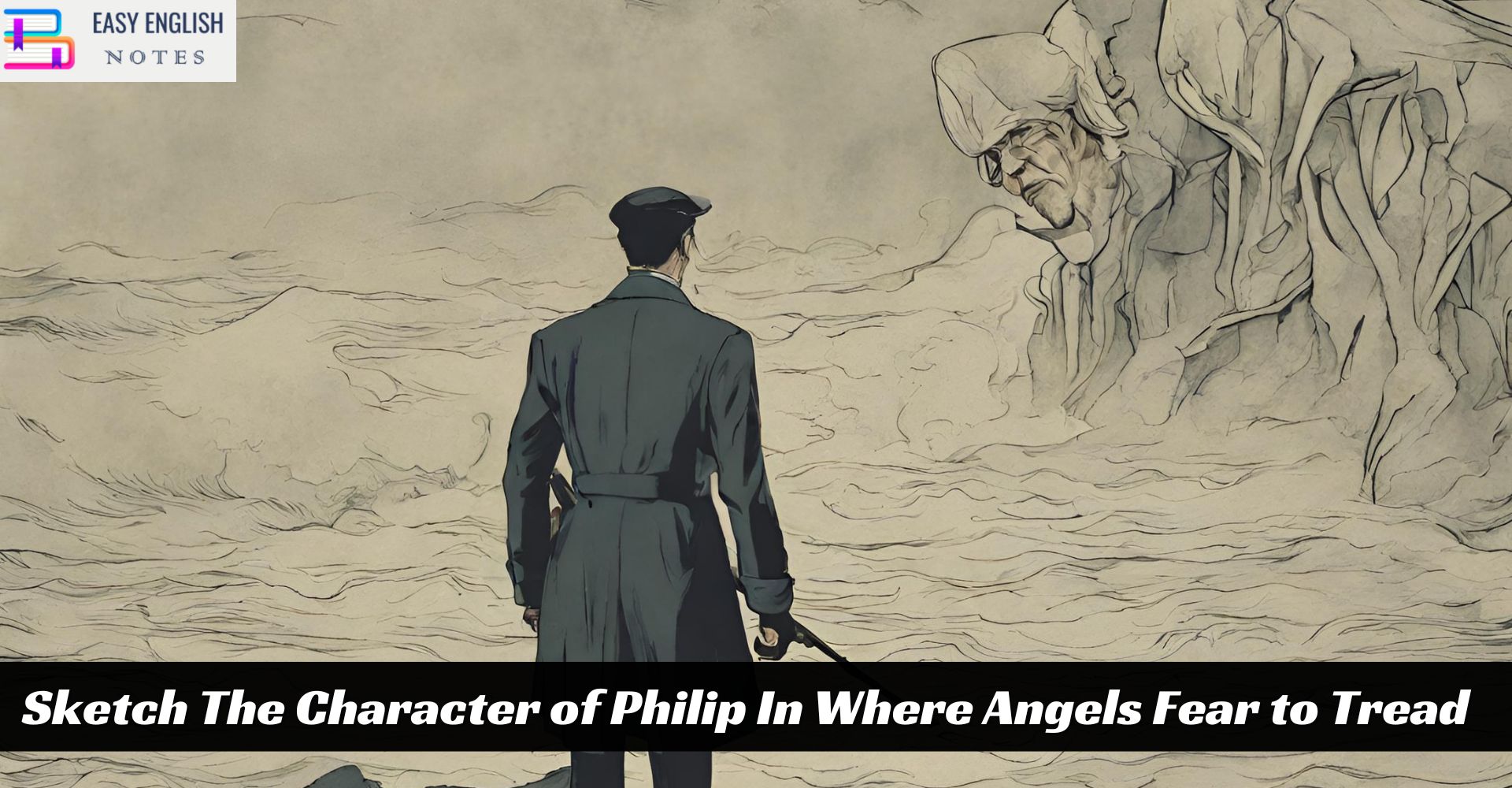Philip Herriton is a central character in E.M. Forster’s novel “Where Angels Fear to Tread,” and his character is integral to the novel’s exploration of themes such as cultural clash, personal growth, and the complexities of human relationships. Here is a sketch of Philip’s character:
- Intelligent and Reflective: Philip is portrayed as an intelligent and reflective individual. He often contemplates the deeper meanings and implications of events and relationships. This introspective nature sets him apart from other characters who are more impulsive or dogmatic.
- Culturally Sensitive and Open-Minded: Unlike other members of his family, particularly Harriet, Philip demonstrates a degree of cultural sensitivity and open-mindedness. He shows a willingness to engage with and understand Italian culture, which reflects a broader mindset and contrasts with the ethnocentrism of his family.
- Struggle with Family Expectations: Throughout the novel, Philip struggles with the expectations and conventions imposed by his family and English society. This internal conflict between his own values and those of his family is a key aspect of his character development.
- Evolution of Views and Attitudes: Philip undergoes significant character development in the story. He starts as somewhat passive and compliant with his family’s wishes but gradually becomes more assertive and independent in his thoughts and actions, especially as he confronts the realities of the situation in Italy.
- Empathetic and Compassionate: He displays a sense of empathy and compassion, particularly in his interactions with the Italian characters. His ability to feel and express empathy is a stark contrast to the more judgmental and rigid attitudes of his family.
- Conflict between Idealism and Realism: Philip often finds himself torn between idealism and realism. He grapples with his ideals about life, love, and human connection, and the practical realities of the situations he encounters. This conflict is central to his personal journey in the novel.
- Complex Relationships: Philip’s relationships with other characters, including his family members, Lilia, and Gino, are complex and evolve over the course of the narrative. These relationships challenge his beliefs and force him to confront his own prejudices and assumptions.
In summary, Philip Herriton is a complex character who embodies the themes of cultural sensitivity, personal growth, and the internal conflict between societal expectations and personal values. His reflective nature, empathy, and evolving worldview play a significant role in the novel’s exploration of cultural interactions, family dynamics, and the journey towards self-understanding and authenticity.
Also Read :
- Compare Hamlet with Macbeth, Othello and other Tragedies
- “The Pardoner’s Tale” is the finest tale of Chaucer
- Prologue to Canterbury Tales – (Short Ques & Ans)
- Confessional Poetry – Definition & meaning
- Line By Line Explanation Of The Poem The Eve of St. Agnes
Philip is perhaps less important character than Caroline. Philip plays a very important role. In the character of Philip we see the background of Forster. He has drawn self-portrait. He is like a bridge between Swaston and Monteriano. But the bridge breaks down. The real connecting link between Swaston and Monteriano, the child is broken down. Philip returns disappointed to Sawston. But he has grown wiser. He has fallen in love with Caroline. Philip persuades Lilia to give up the man. “The whole thing is like a bad dream so bad that it cannot go on. If there was one redeeming feature about the man I might be uneasy. As it is I can trust to time. For the moment, Lilia, he has taken you in, but you will find him out soon. It is not possible that you a lady accustomed to ladies and gentlemen, will tolerate a man whose position is well not equal to the son of the servant’s dentist in Coronation place. I am not blaming you now,”
In the Italian air. Philip and Abbot seem to be becoming more intimate. Philip found a certain grace and lightness in Abbot which he had never noticed in England. Philip told Abbott that the Italian know how to live. Moreover the Italians are boisterous people. They do not love music silently. As Philip searches for the person whose banquet that was, his hand was sized affection Italy by Gino who was full of excitement and complaining that Philip had not written to him had taken him by surprise. Philip himself had undergone a dramatic change in his outlook on life. He had understood the physical side of love. He was passionate for Abbott. He asks Abbott what her future plans are: “She replies Sawston and Work.” When the tragic scene happened Philip feels ashamed. He goes to Gino to tell him about the tragedy. Gino assaults him with violence. He twists Philip’s broken arm and tries to choke him to death. But Caroline saves his life. Finally Harriet and Caroline return to England. And the story comes to an end.











